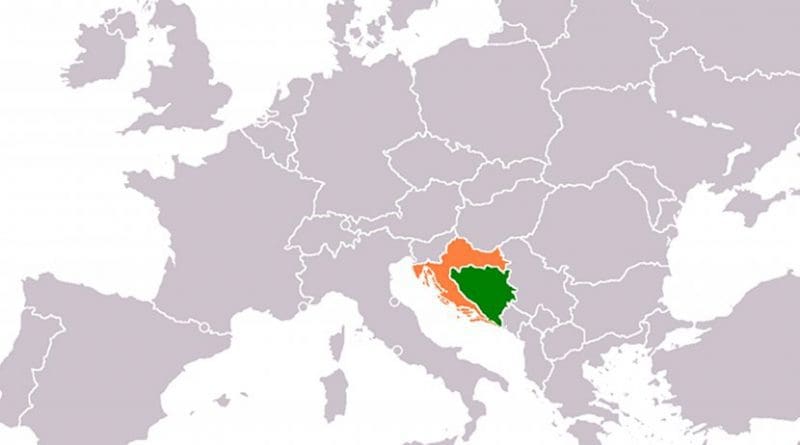Bosnia War Veterans Block Border Crossing With Croatia
By Danijel Kovacevic
Former soldiers from Bosnia and Herzegovina’s Federation entity blocked the Bijaca border crossing with Croatia, demanding welfare benefits and a proper register of those who fought in the 1992-95 war.
Some 100 former soldiers, members of the Forgotten Defenders association, blocked the Bijaca crossing in eastern Bosnia on Monday in the latest protest by war veterans from the Bosnian Army and Croatian Defence Council, the association’s president said.
Forgotten Defenders’ president Drago Grbavac apologised to all those who were held up at the border crossing by the protest.
“We really do not want this, we have tried everything, we have been through all the institutions and we have not come to an understanding anywhere,” Grbavac told Bosnian media.
In February, protesting veterans blocked roads in the Bosnian towns of Tuzla, Zenica and Doboj, and the main road from Sarajevo to Konjic.
They also protested outside the Bosnian Federation entity parliament in April, calling on MPs to discuss their demands.
They are asking for 326 Bosnian marks (about 167 euros) per month in benefits for unemployed veterans, and for every former soldier to get two or three Bosnian marks (one to 1.5 euros) for each month they served during wartime.
They also want the establishment of a single, unified registry of veterans in the Federation who were members of the Bosnian Army and the Croatian Defence Council in order to weed out people who have falsely declared themselves to be veterans.
The protesters’ third demand is an end to the financing of what they see as unnecessary veterans’ associations by the Federation and cantonal governments.
“Twenty million Bosnian marks [10 million euros] a year, according to their acknowledgement, are spent on these associations. That makes no sense,” Grbavac said.

